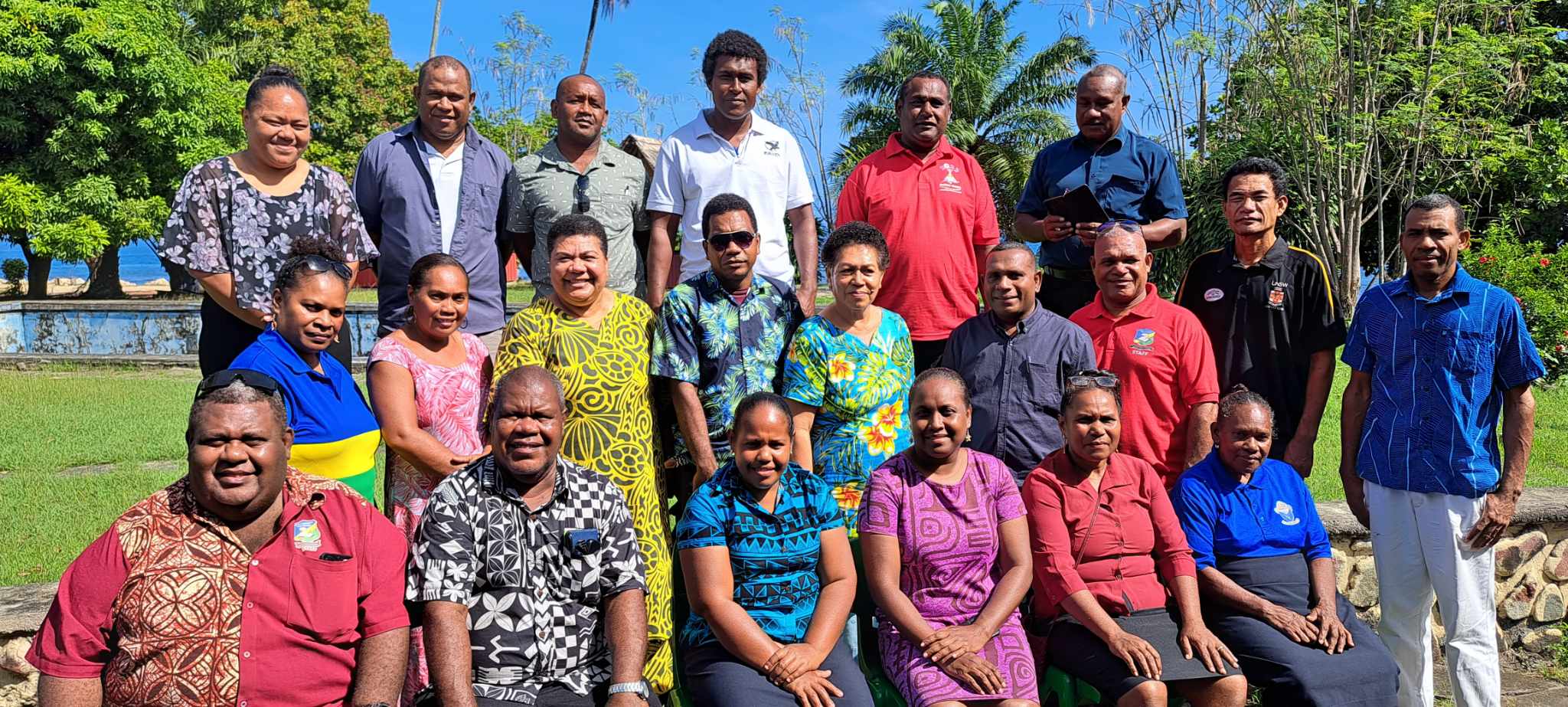Related News

The University of the South Pacific’s (USP) Discipline of Education (DOE), acting as an implementing agency for the Pacific Regional Education Framework (PacREF), recently concluded a successful visit to the Solomon Islands. Aiming to strengthen Early Childhood Education (ECE) initiatives, the visit focused on collaborating with the Ministry of Education, teachers, and school heads to strengthen ECE teacher training and curriculum development.
Led by Dr Rosiana Lagi, Deputy Head of Learning, Teaching, and Quality at USP’s School of Pacific Arts, Communication and Education (SPACE), and consultant Dr Ledua Waqailiti, the visit began with a courtesy meeting with Solomon Island’s Permanent Secretary of Education, Dr Franco Rodie. This meeting laid the groundwork for strong collaboration between PacREF and the Ministry of Education.
A pivotal two-day workshop and survey gathered valuable insights and recommendations from diverse participants, including ECE, primary and secondary teachers, school heads, and Ministry officials. A key sentiment emerged: the urgent need for a unified National ECE Curriculum, collaboratively developed by PacREF, the Solomon Islands National University (SINU), and the Ministry of Education. This curriculum would align with teacher training programs, ensuring a cohesive approach to early childhood education.
“Participants emphasised the importance of aligning ECE strategies with children’s Foundation Areas of Learning and Development (FALD), particularly for ages 3-5,” Dr Lagi explained. “A robust curriculum designed to enhance FALD was deemed essential for laying a strong educational foundation for young learners.”
Dr Lagi further stressed the crucial role of collaboration between PacREF, SINU, and the Ministry of Education in establishing a comprehensive National ECE Curriculum. “Our combined efforts will result in an effective framework that nurtures the developmental needs of our youngest learners,” she asserted.
This visit exemplifies USP’s commitment to quality education. Through its School of Pacific Arts, Communication, and Education (SPACE), the university empowers students to become educators who contribute to a better quality of life for their communities, in line with the goals of PacREF.
DOE implements PacREF activities according to the PacREF Rolling Plan.
The activities under the Implementation Rolling Plan are structured under each of the four policy areas of the Programme and clustered into 16 Regional Public Goods (RGs).
The Pacific Regional Education Framework programme is now at the end of phase one of implementation, and implementing agencies (IAs), including the Pacific TAFE, Institute of Education (IOE), Discipline of Education (DOE) of the University of the South Pacific (USP); the Educational Quality Assessment Programme (EQAP) of the Pacific Community (SPC); and partner agencies the United Nations Educational Scientific and Cultural Organization (UNESCO), the United Nations Children’s Fund (UNICEF), the Australia Pacific Training Coalition (APTC) and the Pacific Islands Forum Secretariats work collaboratively and are guided by the PacREF Implementation Rolling Plan (IRP) to ensure the sustainable, affordable and successful implementation of the programme.